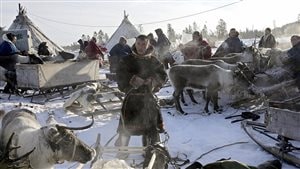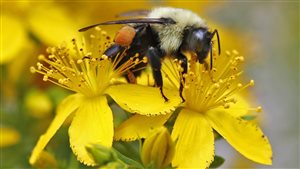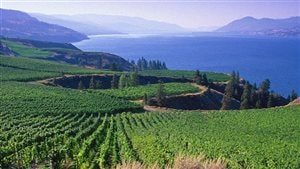Your hosts, Lynn, Levon, and Marc
Listen
Two Canadian researchers are heading off to Siberia to talk with Nanets reindeer herders.
The researchers are hoping the Nanets can help solve an archeaeological mystery.
At a site on the Yamal Peninsula, the researchers uncovered what they think may be an ancient reindeer harness at least two thousand years old.
They’ve recreated the harness and want the Nanets to try it out. If it works it could change what we know about the history of reindeer herding.
Levon speaks to Rob Losey about the goals of the research.
*

Bee populations are in decline the world over and researchers are trying to find out why.
A new study looked at wild bumblebees and the effects of pesticides on the queen bees.
The study looked at four different bee species.
Lynn spoke to Nigel Raine, a professor at the University of Guelph who is an expert in pollinators.
*

Wine lovers can take heart, climate change is not going to end the supply of wine. However, it might eventually change where it comes from.
With warming, and other serious weather anomalies, those “traditional” wine growing regions around the world are facing an increasing degree of hardships. While warming generally brings some benefits to a cooler climate in Canada, it can pose problems in already warm areas, where longer droughts and heat waves can become serious, along with sudden heavy downpours and more violent storms in all areas.
Marc speaks with wine scientist, professor Gary Pickering of Brock University in St. Catharines Ontario.
Images of the week







For reasons beyond our control, and for an undetermined period of time, our comment section is now closed. However, our social networks remain open to your contributions.